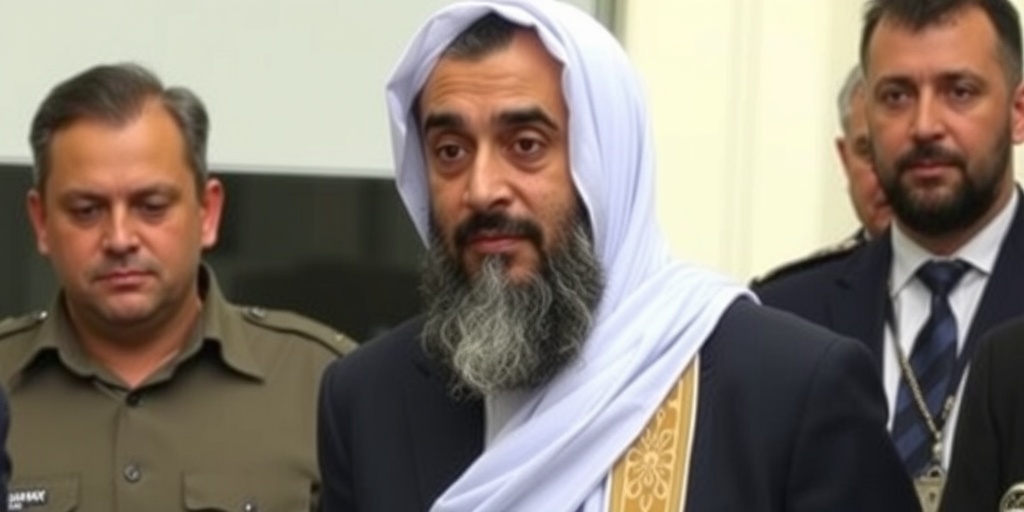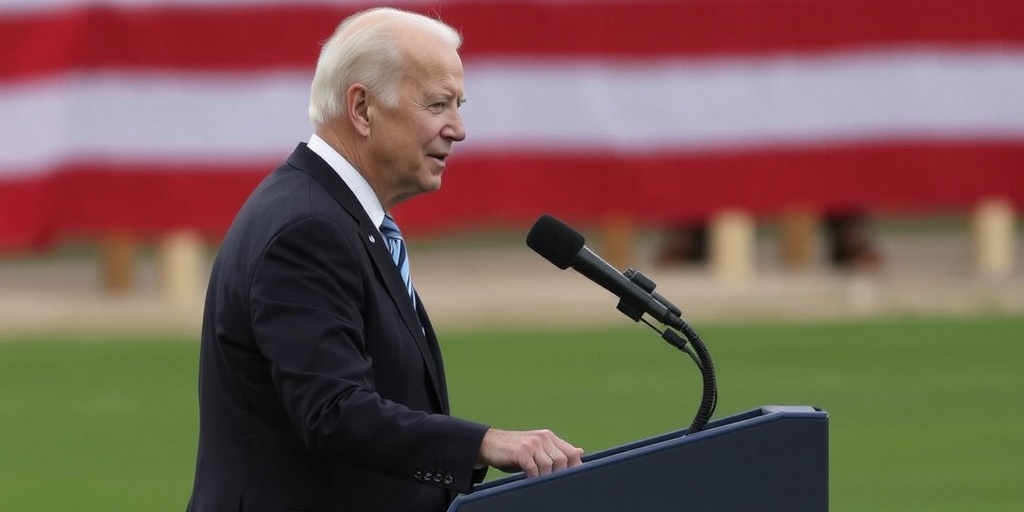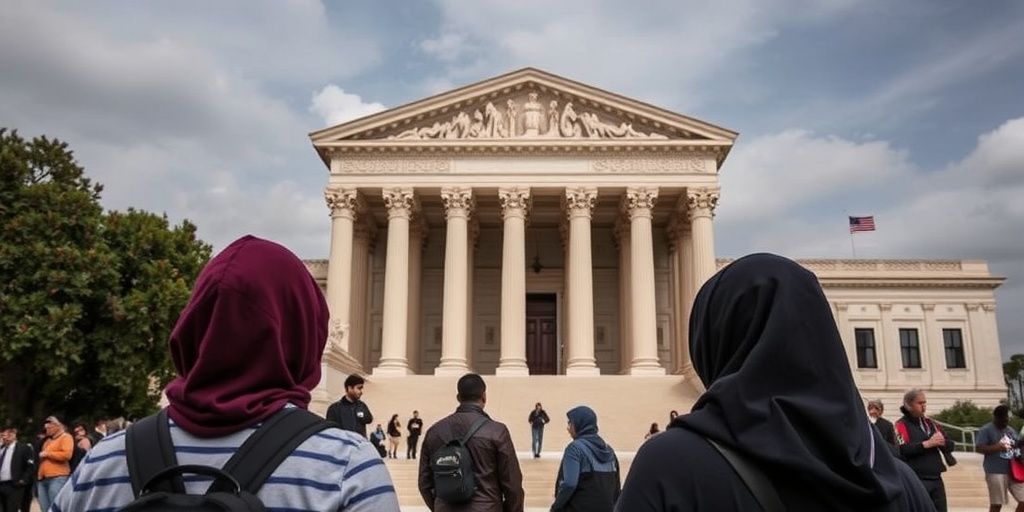Now Reading: Former Taliban Ambassador to Spain Detained by Immigration Officials
-
01
Former Taliban Ambassador to Spain Detained by Immigration Officials
Former Taliban Ambassador to Spain Detained by Immigration Officials

Title: Detention of Former Taliban Diplomat Raises Questions on U.S. Immigration Policies
The recent detention of Mohammad Rahim Wahidi, the former Taliban ambassador to Spain, has brought attention to the complexities of U.S. immigration laws and their potential use as tools of political maneuvering. Wahidi was intercepted by U.S. immigration officials upon his arrival at Washington Dulles International Airport on Saturday. Following his arrest, a federal judge declined to grant his release on Monday, leaving him in custody while raising significant concerns about his treatment and the legal basis for his detention.
Wahidi, a lawful permanent resident of the United States, is married to Mary Shakeri-Wahidi, who is a U.S. citizen. His lawyer, Hassan Ahmad, has been vocal about what he describes as the weaponization of the Immigration and Nationality Act, a law that allows the Secretary of State to order the deportation of noncitizens deemed a national security risk. This case marks a notable intersection of immigration enforcement and national security considerations, fueling a larger debate about who is targeted by such actions and why.
Notably, the Trump administration has previously invoked similar interpretations of the law to justify the cancellation of visas for numerous individuals, especially those involved in pro-Palestinian demonstrations. These actions have sparked considerable controversy, as they blur the lines between lawful dissent and grounds for deportation. Student activists, including individuals like Mahmoud Khalil, Rumeysa Ozturk, and Momodou Taal, have found themselves at the center of this targeting. The administration posits that the protests against Israel, some of which turned contentious, could lead to "adverse foreign policy consequences" justifying their removal from the U.S.
In Wahidi’s case, the reasons for his detention appear more complex. His brother-in-law is reportedly wanted by the U.S. government for involvement in a plot to assassinate an Iranian journalist, a detail that has added gravity to the national security claims surrounding Wahidi’s status. This link underscores the often murky connections between personal relationships and broader geopolitical contexts, particularly for individuals with ties to organizations like the Taliban.
Wahidi’s diplomatic credentials were suspended during his tenure in Spain amid accusations of sexual assault; however, no criminal charges were pursued, and he was permitted to return to the U.S. With this background, his recent detention has raised questions about how allegations alone can influence immigration enforcement actions.
Upon his return to the U.S. on a Turkish Airlines flight, Wahidi experienced a long detention of over 30 hours without access to legal representation. Reports indicate that he was interrogated by a number of officers, some believed to be from the FBI. This lack of access to legal counsel raises concerns about the adherence to due process, especially as the detention appears to stem from broader national security implications rather than direct criminal behavior.
Wahidi’s situation also echoes the plight of others who have found themselves in similar predicaments. Ahmad, who has represented individuals facing deportation in other politically charged contexts, emphasized the recurring theme of individuals being targeted based on their political beliefs and affiliations. The case of Badar Khan Suri at Georgetown University is another recent example, where his involvement in campus protests led to his consideration for deportation.
When faced with Wahidi’s petition for release, Judge Leonie Brinkema of the U.S. District Court for the Eastern District of Virginia opted not to immediately order his release, stating that "the court cannot offer any relief" at this juncture. However, she has mandated that U.S. Customs and Border Protection comply with short-term detention standards and has also stipulated that Wahidi should not be prevented from speaking with his lawyer. This ruling, while protective in nature, does not grant immediate freedom for Wahidi and underscores the legal limbo in which he currently resides.
The case continues to unfold and has the potential to set precedents regarding how individuals linked to foreign governments and organizations are treated under U.S. immigration law. As the nation grapples with the implications of national security on civil liberties, Wahidi’s detention has ignited discussion about the intersection of immigration enforcement, due process, and the rights of lawful permanent residents. This evolving situation serves as a reminder that the implications of immigration policy extend far beyond borders, affecting individuals’ lives in deeply personal ways.
Stay Informed With the Latest & Most Important News
Previous Post
Next Post
-
 01New technology breakthrough has everyone talking right now
01New technology breakthrough has everyone talking right now -
 02Unbelievable life hack everyone needs to try today
02Unbelievable life hack everyone needs to try today -
 03Fascinating discovery found buried deep beneath the ocean
03Fascinating discovery found buried deep beneath the ocean -
 04Man invents genius device that solves everyday problems
04Man invents genius device that solves everyday problems -
 05Shocking discovery that changes what we know forever
05Shocking discovery that changes what we know forever -
 06Internet goes wild over celebrity’s unexpected fashion choice
06Internet goes wild over celebrity’s unexpected fashion choice -
 07Rare animal sighting stuns scientists and wildlife lovers
07Rare animal sighting stuns scientists and wildlife lovers





















